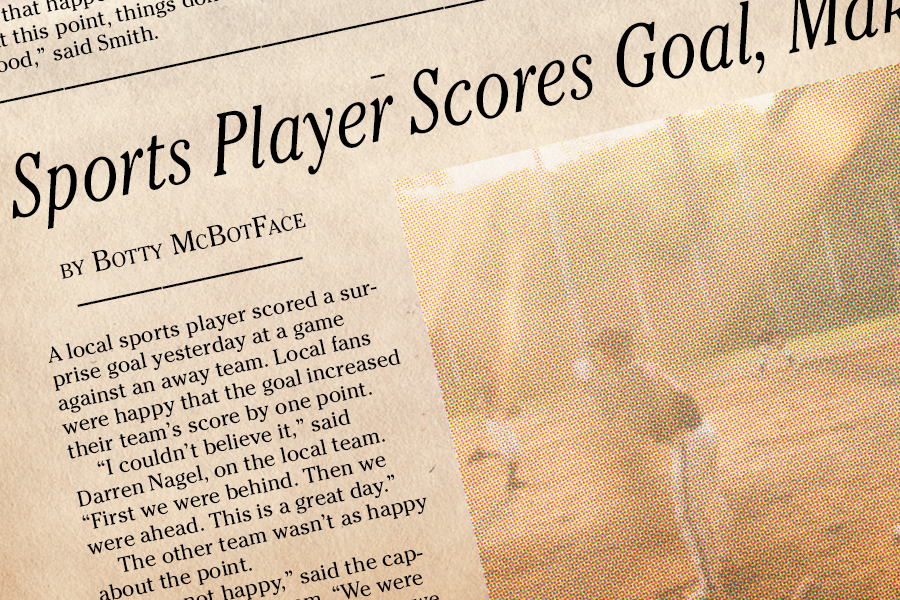Last week’s announcement that the Vancouver Sun-Province is laying off another 54 people, while half a dozen corporate executives earned $2.3 million in bonuses, suggests that it’s time to find the cash to hire robots to do some of the reporting at Postmedia.
Bots have been on the news beats since 2015, and they’re starting to get good at it. The Washington Post’s Heliograf program was a big part of its stellar election coverage, with digital-reporters writing 500 election stories, and pulling 500,000 clicks, in a fraction of the time it would take meat-reporters to churn out that copy.
Of course that kicked off yet another panic about how citizens are getting their news.
Having witnessed angry auto-tweeters mouthing off in Twitter, I understand why some people fear the bots. But judging by the Post’s experience, mechanical scribes are the citizen’s friends.
As Post editors told Wired magazine, their custom robot covers stories that might otherwise be overlooked. It churns out small, relatively simple news stories along the lines of who-won-which-race, in which riding. That kind of reporting won’t win Pulitzers, but it’s crucial to the readers in those towns.
Heliograf also functions as a kind of journo’s assistant, alerting a human to odd voting patterns or unexpected election results. That frees up the human journalists to analyze the information, ask questions, do interviews, and write engaging prose for stories where the quality of the writing matters.
The upshot is that the Post is attracting new subscribers, partly due to the depth of its coverage. Which also means that this year it is adding about five dozen meat-journalists to the newsroom.
That’s right: Botty McBotFace didn’t steal the reporters’ jobs; its prolific reporting attracted more readers — and the advertisers trying to reach them. Which is why they can afford more of the flesh-and-blood hacks.
It’s no surprise that Heliograf began, as many young reporters do, in the sports section covering last year’s Olympics in Rio. I’m sure the few witty sports writers I know will forgive me for stating the obvious: when it comes to sports writing, stringing together clichés is practically mandatory, which makes it just the job for bots.
That’s how they work. Human writers create templates with key phrases covering various scenarios. At this point in their development the sporty-bots write at about the level of your average blogger, which is to say they would all flunk journalism school.
Take the AP’s “Wordsmith” program, which has been covering games for the U.S. wire service since 2015. Everyone agrees it won’t win any writing prizes.
But as basic, gruntwork sports reporting goes, it’s good enough. And done by a bot, the price is right. Not every reader wants prize-winning prose and most obsessive sports fans, running a fantasy sports team, couldn’t care less. They just want to know who won and if possible, why. They are willing to do the hard work of slogging through clumsy writing to get that info.
Now, I realize my friends and colleagues will yell at me for advocating lousy newswriting in addition to coming out as a newsbot-supporter. But hear me out.
In journalism circles, we often discuss how, as newsrooms are cut, we’re losing the public record. Until concentration of ownership ramped up in the 1980s, newspapers sent rookie reporters learning the trade to cover civic institutions. The resulting stories were often a bit of a snooze, except for crime stories, of course. But come election time, they offered an easy-access record of how elected officials at city council and school board behaved.
Reporters covered other civic institutions too. Arts organizations, for example, are frequently non-profits run on public money. As are all sorts of charities. Bots accessing board minutes and annual reports and then spinning stories about deficits and donations could only improve citizens’ knowledge. And there is a niche of any community that cares deeply about these things.
That kind of local news reporting was the sort of thing that once made Postmedia’s roughly 180 newspapers valuable to their communities. Robots could be used to return them to their former glory by restoring that small army of un-bylined scribes who once toiled in mid-20th century papers.
You didn’t think I was proposing bots replace reporters and editors at Postmedia, did you? No! Those people are good at their jobs; a robot can’t replace them. But it could supplement their work. And judging by what happened at the Washington Post it might just help save their jobs.
As for costs, I know exactly how to fund it. By firing CEO Paul Godfrey and his million-dollar wrecking crew.
The Vancouver Sun-Province layoffs include 29 jobs in the already minuscule editorial staff of 105, which is filling three newspapers.
It’s a vicious cycle: the lay-offs mean fewer stories, which guarantees they will lose more readers, which in turn loses them more advertisers... and on and on until the whole business collapses.
So I looked up the cost of Wordsmith: it starts at $1,000 a month and the price increases according to the volume of stories. The mind boggles thinking about how many news stories a robot could produce for the $1.7 million Godfrey earns annually.
Throw in the $2.3 million in “retention bonuses” to keep those newspaper-killing executives on the payroll, and you might just turn it around.
As for who will do the executive jobs, isn’t it obvious? I’m sure one of McBotFace’s less sophisticated cousins could do that hack-and-slash job at least as well as Godfrey and the destroyers.
© Shannon Rupp. For permission to reprint this article please contact the author: shannon(at)shannonrupp.com. ![]()
Read more: Media















Tyee Commenting Guidelines
Comments that violate guidelines risk being deleted, and violations may result in a temporary or permanent user ban. Maintain the spirit of good conversation to stay in the discussion.
*Please note The Tyee is not a forum for spreading misinformation about COVID-19, denying its existence or minimizing its risk to public health.
Do:
Do not: